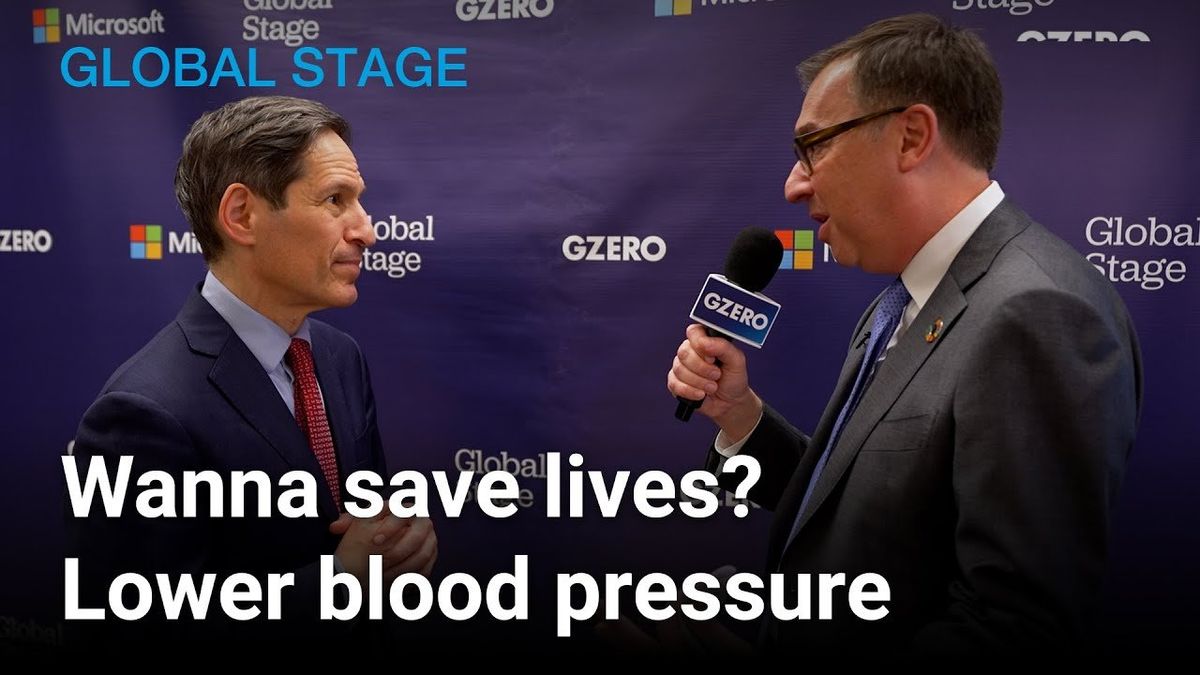Every year, over ten million people globally die from high blood pressure, more than all infectious diseases combined. Dr. Tom Frieden, former director of the Centers for Disease Control, is tackling this massive problem in public health, among many others, as CEO of Resolve to Save Lives.
He told GZERO’s Tony Maciulis that ensuring easy access to three drugs — amlodipine for blood pressure, metformin for blood sugar, and atorvastatin for cholesterol — could save tens of millions of lives over the next quarter century for just a penny per pill.
It’s part of a set of goals Frieden calls the three Rs: Renaissance in public health, robust primary healthcare and resilient populations. But as the developing world takes on more and more public debt, where will the money come from?
See more from Global Stage.

















